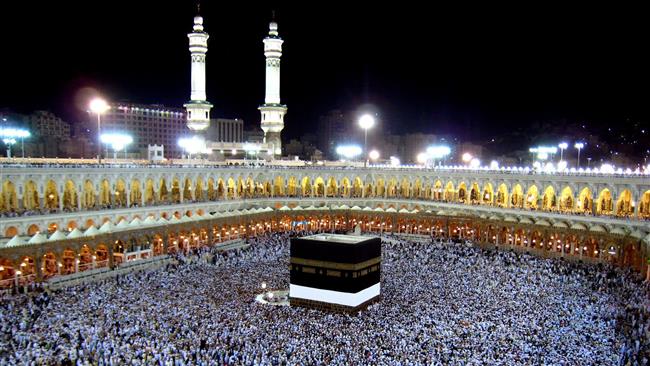Hajj, a cornerstone of Islam, is a sacred pilgrimage obligatory once in a lifetime under specific conditions. This religious duty necessitates maturity, freedom, financial capability, and absence of obstacles. Rooted in Qur’anic verses, the text succinctly explores the various dimensions of Hajj. The profound spiritual aspects are summarized by the teachings of Prophet Muhammad (peace be upon him) and Imam Sadiq (a.s.), emphasizing the significance and rewards of this sacred journey. In this article, we examine when hajj is obligatory for Muslims.
Necessity of hajj
Hajj is one of the essentials of Islam. Necessities are rules that denying them, due to their necessity, is a disbelief, and abandoning Hajj or taking it lightly is disbelief.
Abandoning Hajj and delaying it is one of the major sins for a person who can afford it, without a legitimate excuse.
Hajj is obligatory once in a person’s entire life, which is called Hajj al-Islam. Although it is possible that Hajj has been performed in various ways such as vows, pledges, oaths, cancellation of Hajj, and it becomes obligatory several times like these, and other than that, Hajj is obligatory. Hajj is a mustahab act.

The obligation of Hajj is immediate when the conditions are met; That is, it must be done in the first year of ability, and if it is left intentionally or for an excuse in the first year, it must be done in the second year, and in the case of leaving in the following years.
Conditions of Hajj becoming obligatory
hajj obligatory conditions include these:
First: be mature.
Second: be wise and free.
Third: By going to Hajj, he should not be forced to do the forbidden work, which is more important in Sharia than Hajj.
Fourth: Don’t leave the obligatory act which is more important than Hajj.
Fifth: he should be affording (Mustati’).
Sixth: He should have travel luggage and things that he needs during the trip, depending on his condition.
Seventh: To have a vehicle or money that can provide it.
Eighth: He has good temperament and ability to go to Mecca and perform Hajj.
Ninth: If there is no obstacle on the way, and if the way is closed, or if a person fears that his life or wealth will be lost on the way, or if his property will be taken, Hajj is not obligatory on him; But if he can go by another way, even if it is far, if it is not too difficult, he should go by that way.
Tenth: He should have enough time to perform Hajj.
Eleventh: He should have the expenses of those whose expenses are obligatory on him, such as his wife and children, and the expenses of those whom people consider it necessary to spend on them.
12th: After returning, he should acquire or cultivate or earn property or have another way to earn his living so that he does not have to live in hardship.

Verses of Hajj about Hajj obligatory
There are several verses in the Qur’an about the various dimensions of Hajj, of which we refer to two verses:
And raise a call among the people for Hajj, so that [pilgrims] on foot and [riding] on every thin camel – who come from every distance – will turn towards you./Hajj 27
In fact, the first house that was built for the [worship] of people is the one in Makkah, and it is blessed, and it is a [source of] guidance for the worlds. In it, there are clear signs [including] the position of Abraham and whoever enters it is safe, and for God, the Hajj of that house is the responsibility of the people; [of course] for the one who is able to reach it and whoever disbelieves, surely Allah has no need of people of world./Al-Imran 96 and 97.
Prophet hadith on hajj about hajj obligatory
The Messenger of God (peace be upon him) said : “The best deeds are faith in which there is no doubt, jihad in which there is no deception, and Hajj in which it is accepted”.
The Messenger of God (PBUH) said: “The reward of accepted Hajj is nothing but Paradise”.
Imam Sadiq hadith on hajj
Another detailed narration was narrated from Imam Sadiq (a.s.) which was about the spiritual aspect of Hajj. The description of the narration, which is presented in parts for ease of use, is as follows:
Imam, peace be upon him said: When you intend to perform Hajj, empty your heart for the sake of God from every job that encompass it and from every veil that covers it.
And leave your affairs completely to your creation and trust and hope in him in all that happens from your movements and rests, and submit to his judgment and decision and say goodbye to the world and its people and to the rights that are on your neck from the people.
And don’t rely on luggage, riding vehicle, companions, strength, youth, and wealth; Because these may become enemies and plagues on your neck, not your helper! because, whoever claims to desire God’s pleasure and trusts other than Him, God will turn that other person around his woe and foe so that he is warned against this paganist thought and knows that neither he nor anyone else has the ability or means except By God’s grace and success.
So, prepare for the journey, just like the preparation of a person who has no hope of returning, and when traveling with your companions, behave well them and fully observe the times of daily prayers and the traditions of the Holy Prophet (PBUH) and what is obligatory on you, namely being polite and enduring hardships and being patient and kind and generous.
7 interesting Places to visit in Jeddah
Concluding Thought
In conclusion, Hajj stands as a profound obligation in Islam, weaving spiritual significance into the fabric of a believer’s life. Rooted in conditions of maturity, freedom, and financial capability, the pilgrimage beckons Muslims to a sacred journey. As echoed in Qur’anic verses and the teachings of revered figures like Prophet Muhammad (peace be upon him) and Imam Sadiq (a.s.), the rewards of Hajj extend beyond the physical realm, offering a transformative experience. Embracing the essence of submission, endurance, and devotion, Hajj epitomizes a spiritual odyssey that resonates with the core tenets of Islamic faith.




